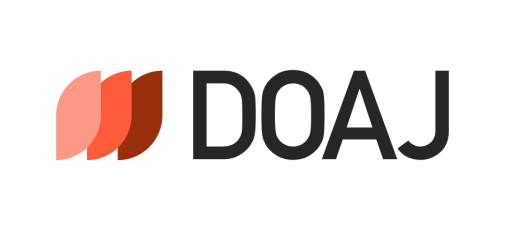Kontribusi Planned Happenstance Skills terhadap Perilaku Eksplorasi Karier Siswa Sekolah Menengah Kejuruan: Peran Mediasi Career Decision Self-Efficacy
Abstract
Abstract: Career exploration is the acquisition of career information that results in the formation of career maturity. This study aims to explain the role of internal factors that drive career exploration behavior. Specifically, the study examines the role of career decision self-efficacy in mediating the effect of planned happenstance skills on career exploration behavior. The study applied correlational design with regression analysis. 414 male and 394 female students from vocational high schools in Jakarta were chosen purposively to participate in the study. The Career Exploration Survey, The Planned Happenstance Skill Inventory, and The Career Decision Self-Efficacy Scale-Short Form were used to collect research data. The results show that the effect of planned happenstance skills on student career exploration behavior was partially mediated by career decision self-efficacy. This indicates that the development of the ability to take advantage of certain events can form career related behaviors. Based on the results, it is recommended for school counselors to train students with planned happenstance skills while conducting career counseling in order to develop their career readiness optimally
Abstrak: Eksplorasi karier adalah perilaku pemerolehan informasi yang berujung pada terbentuknya kematangan karier seseorang. Penelitian ini berusaha menjelaskan peran faktor intriksik yang mendorong perilaku eksplorasi karier siswa. Secara spesifik, penelitian ini menguji peran career decision self-efficacy dalam memediasi pengaruh planned happenstance skill terhadap perilaku eksplorasi karier siswa. Penelitian kuantitatif ini mempunyai desain penelitian korelasional dengan teknik analisis regresi. Pengambilan sampel dilakukan dengan menggunakan teknik purposive sampling. Responden pada penelitian ini adalah para siswa dari Sekolah Menengah Kejuruan (SMK) di Jakarta. Pengambilan data secara survei dilakukan kepada responden yang terdiri dari 414 laki-laki dan 394 perempuan. Alat ukur yang digunakan adalah Career Exploration Survey, The Planned Happenstance Skill Inventory, serta Career Decision Self-Efficacy Scale Short Form. Berdasarkan hasil uji regresi dengan PROCESS dari Hayes, ditemukan bahwa pengaruh yang dihasilkan oleh planned happenstance skill terhadap perilaku eksplorasi karier siswa dimediasi secara parsial oleh career decision self-efficacy. Penelitian ini mengindikasikan bahwa pengembangan terhadap kemampuan mengambil kesempatan dari peristiwa tertentu dapat membantu siswa dalam proses pembentukan perilaku yang terkait karier. Berdasarkan hasil penelitian ini, konselor sekolah disarankan untuk menggabungkan pelatihan kemampuan planned happenstance pada saat sedang melakukan sesi konseling agar kesiapan siswa dalam kariernya bisa berkembang dengan optimal.
Keywords
Full Text:
PDFReferences
Ahn, S., Jung, S. H., Jang, S. H., Du, X., Lee, B. H., Rhee, E., … Lee, S. M. (2015). Planned happenstance skills and occupational identity status in high school students. The Career Development Quarterly, 63(1), 31–43.
An, H., & Lee, S.-H. (2017). Career exploration behavior of Korean medical students. Korean Journal of Medical Education, 29(3), 175–185. https://doi.org/10.3946/kjme.2017.63
Babatunde, J. O. (2018). Effectiveness of guidance and counselling strategies at promoting career decision making among youths in Nigeria. International Research Journals, 9(5), 151–156.
Betz, N. E., Klein, K. L., & Taylor, K. M. (1996). Evaluation of a Short Form of the Career Decision-Making Self-Efficacy Scale. Journal of Career Assessment, 4(1), 47–57. https://doi.org/10.1177/106907279600400103
Brown, S. D., & Lent, R. W. (2019). Social Cognitive Career Theory at 25: Progress in studying the domain satisfaction and career self-management models. Journal of Career Assessment, 27(4), 563–578. https://doi.org/10.1177/1069072719852736
Chan, C.-C. (2018). The relationship among social support, career self-efficacy, career exploration, and career choices of Taiwanese college athletes. Journal of Hospitality, Leisure, Sport & Tourism Education, 22, 105–109. https://doi.org/10.1016/j.jhlste.2017.09.004
Cheung, R., & Arnold, J. (2014). The impact of career exploration on career development among Hong Kong Chinese University students. Journal of College Student Development, 55(7), 732–748. https://doi.org/10.1353/csd.2014.0067
Cozby, P. C., & Bates, S. C. (2015). Methods in behavioral research. New York: McGraw-Hill.
Damarjati, T. (2016). Konsep pembelajaran di sekolah menengah kejuruan. kementerian pendidikan dan kebudayaan. Retrieved from http://psmk.kemdikbud.go.id/konten/1869/konsep-pembelajaran-di-sekolah-menengah-kejuruan
Demulier, V., Le Scanff, C., & Stephan, Y. (2013). Psychological predictors of career planning among active elite athletes: An application of the social cognitive career theory. Journal of Applied Sport Psychology, 25(3), 341–353.
Eissenstat, S. J., & Nadermann, K. (2019). Examining the use of planned happenstance with students of Korean cultural backgrounds in the United States. Journal of Career Development, 46(4), 455–468.
El-Hassan, K., & Ghalayini, N. (2019). Parental attachment bonds, dysfunctional career thoughts and career exploration as predictors of career decision-making self-efficacy of Grade 11 students. British Journal of Guidance & Counselling, https://doi.org/10.1080/03069885.2019.1645296.
Erikson, E. H. (1963). Youth: Change and challenge. Basic books.
Gamboa, V., Paixão, M. P., & de Jesus, S. N. (2013). Internship quality predicts career exploration of high school students. Journal of Vocational Behavior, 83(1), 78–87.
Greenhaus, J. H., & Callanan, G. A. (2006). Encyclopedia of career development. California: SAGE Publications Inc.
Hall, D. T. (1986). Breaking career routines: Midcareer choice and identity development. Career Development in Organizations, 120–159.
Haq, A. H. B., & Farida, R. (2019). Orientasi karir pada siswa SMP: Pilihan jurusan dan gambaran Pekerjaan di masa depan. Psikostudia: Jurnal Psikologi, 8(1), 7–14.
Hayes, A. F. (2017). Introduction to mediation, moderation, and conditional process analysis: A regression-based approach. Guilford publications.
Hinton, P. R., McMurray, I., & Brownlow, C. (2014). SPSS explained. Routledge.
Hwang, H., Jang, S., Chung, S., & Lee, S. (2012). Examining the relationship of career aspiration and job exploration behavior on the level of planned happenstance skills. The Korea Journal of Youth Counseling, 20(2), 193–210.
Ireland, G. W., & Lent, R. W. (2018). Career exploration and decision-making learning experiences: A test of the career self-management model. Journal of Vocational Behavior, 106, 37–47.
Jiang, Z. (2015). Core self-evaluation and career decision self-efficacy: A mediation model of value orientations. Personality and Individual Differences, 86, 450–454. https://doi.org/10.1016/j.paid.2015.07.012
Jiang, Z., Newman, A., Le, H., Presbitero, A., & Zheng, C. (2019). Career exploration: A review and future research agenda. Journal of Vocational Behavior, 110, 338–356. https://doi.org/10.1016/j.jvb.2018.08.008
Jordaan, J. P. (1963). Exploratory behavior: The formation of self and occupational concepts. Career Development: Self-Concept Theory, 42–78.
Kanten, S., Kanten, P., & Yeşiltaş, M. (2016). The role of career self-efficacy on the effect of parental career behaviors on career exploration: A study on school of tourism and hotel management’students. European Journal of Multidisciplinary Studies, 1(6), 143–154.
Kidd, J. M. (1998). Emotion: An absent presence in career theory. Journal of Vocational Behavior, 52(3), 275–288.
Kim, Boram, Jang, S. H., Jung, S. H., Lee, B. H., Puig, A., & Lee, S. M. (2014). A moderated mediation model of planned happenstance skills, career engagement, career decision self-efficacy, and career decision certainty. The Career Development Quarterly, 62(1), 56–69. https://doi.org/10.1002/j.2161-0045.2014.00070.x
Kim, Boyoung, Kim, S. R., Yang, N. Y., Yaung, H., Ha, G. Y., Yang, J. Y., … Lee, S. M. (2018). Longitudinal relationships between planned happenstance skills and life adjustment and the moderating role of career barriers. Journal of Career Development, 45(3), 215–226. https://doi.org/10.1177/0894845316681078
Knight, J. L. (2015). Preparing elementary school counselors to promote career development: Recommendations for school counselor education programs. Journal of Career Development, 42(2), 75–85.
Kolarić, A., Cool, C., & Stričević, I. (2018). Adolescent information behaviour in everyday life decision making. Vjesnik Bibliotekara Hrvatske, 61(1), 83–125.
Krumboltz, J. D. (2009). The happenstance learning theory. Journal of Career Assessment, 17(2), 135–154. https://doi.org/10.1177/1069072708328861
Krumboltz, J. D., Foley, P. F., & Cotter, E. W. (2013). Applying the happenstance learning theory to involuntary career transitions. The Career Development Quarterly, 61(1), 15–26. https://doi.org/10.1002/j.2161-0045.2013.00032.x
Lau, P. L., Chung, Y. B., & Wang, L. (2019). Effects of a career exploration intervention on students’ career maturity and self-concept. Journal of Career Development, 1–14. https://doi.org/10.1177/0894845319853385
Lent, R. W., Ireland, G. W., Penn, L. T., Morris, T. R., & Sappington, R. (2017). Sources of self-efficacy and outcome expectations for career exploration and decision-making: A test of the social cognitive model of career self-management. Journal of Vocational Behavior, 99, 107–117.
Loewenberg Ball, D., & Forzani, F. M. (2009). The work of teaching and the challenge for teacher education. Journal of Teacher Education, 60(5), 497–511. https://doi.org/10.1177/0022487109348479
Mahir, I., Köhler, T., . S., & PH, S. (2019). Career guidance shortages in Indonesian vocational high school. KnE Social Sciences, 3(12), 223. https://doi.org/10.18502/kss.v3i12.4088
Mitchell, K. E., Al Levin, S., & Krumboltz, J. D. (1999). Planned happenstance: Constructing unexpected career opportunities. Journal of Counseling & Development, 77(2), 115–124. https://doi.org/10.1002/j.1556-6676.1999.tb02431.x
Modestino, A. S., Sugiyama, K., & Ladge, J. (2019). Careers in construction: An examination of the career narratives of young professionals and their emerging career self-concepts. Journal of Vocational Behavior, 115, 1–21. https://doi.org/10.1016/j.jvb.2019.05.003
Muttaqin, R., Wagimin, W., & Tadjri, I. (2017). Keefektifan layanan informasi karier berbantuan video interaktif dan live modeling untuk meningkatkan pemahaman karier siswa SMP. Jurnal Bimbingan Konseling, 6(2), 174–179.
Ngadi, N. (2014). Relevansi pendidikan kejuruan terhadap pasar kerja di Kota Salatiga. Jurnal Kependudukan Indonesia, 9(1), 59–70.
Nota, L., Ginevra, M. C., Santilli, S., & Soresi, S. (2014). Contemporary career construction: The role of career adaptability. In Psycho-social career meta-capacities (pp. 247–263). Springer.
Porfeli, E. J., & Lee, B. (2012). Career development during childhood and adolescence. New Directions for Youth Development, 134, 11–22. https://doi.org/10.1002/yd.20011
Preston, M. (2018). Pengaruh pola asuh ayah dan ibu terhadap efikasi-diri dalam pengambilan keputusan karier yang dimediasi oleh kepribadian proaktif pada siswa sekolah menengah atas. Universitas Indonesia.
Pryor, R. G., & Bright, J. E. (2014). The Chaos Theory of Careers (CTC): Ten years on and only just begun. Australian Journal of Career Development, 23(1), 4–12. https://doi.org/10.1177/1038416213518506
Rogers, M. E., & Creed, P. A. (2011). A longitudinal examination of adolescent career planning and exploration using a social cognitive career theory framework. Journal of Adolescence, 34(1), 163–172.
Santilli, S., Nota, L., & Hartung, P. J. (2019). Efficacy of a group career construction intervention with early adolescent youth. Journal of Vocational Behavior, 111, 49–58. https://doi.org/10.1016/j.jvb.2018.06.007
Sawitri, D. R. (2008). The influence of the status of identity and self-efficacy of career decisions against the doubts of decision making in first year students at Diponegoro University. Jurnal Psikologi Undip, 5(2), 1–14.
Silvianingsih, S., Degeng, I. N. S., Triyono, T., & Radjah, C. L. (2019). Utilizing mind-mapping to foster career exploration of high school students. Journal of Educational and Learning Studies, 2(1), 25–30. https://doi.org/10.32698/0462
Sofyan, R., & Indianti, W. (2019). Pengaruh thinking style tipe II terhadap efikasi diri keputusan karier yang dimediasi oleh planned happenstance skills pada remaja. Jurnal Provitae, 12(2), 41–60.
Stumpf, S. A., Colarelli, S. M., & Hartman, K. (1983). Development of the Career Exploration Survey (CES). Journal of Vocational Behavior, 22(2), 191–226. https://doi.org/10.1016/0001-8791(83)90028-3
Urbanaviciute, I., Kairys, A., Paradnikė, K., & Pociute, B. (2019). Capturing serendipity in careers: An evaluation of the planned Happenstance Career Inventory with Lithuanian undergraduates. Journal of Career Development, 46(2), 157–170.
Valickas, A., Raišienė, A. G., & Rapuano, V. (2019). Planned happenstance skills as personal resources for students’ psychological wellbeing and academic adjustment. Sustainability, 11(12), 3401.
Wicaksonoputro, H. B., & Indrayanti, R. (2017). Profil pengangguran dan lama mencari kerja lulusan SMK. Retrieved from https://ldfebui.org/wp-content/uploads/2017/11/BN-10-2017.pdf
Yang, N., Yaung, H., Noh, H., Jang, S. H., & Lee, B. (2017). The change of planned happenstance skills and its association with career-related variables during school-to-work transition. International Journal for Educational and Vocational Guidance, 17(1), 19–38. https://doi.org/10.1007/s10775-016-9332-z
Zhang, H., & Huang, H. (2018). Decision-making self-efficacy mediates the peer support–career exploration relationship. Social Behavior and Personality: An International Journal, 46(3), 485–498.
Zikic, J., & Hall, D. T. (2009). Toward a more complex view of career exploration. The Career Development Quarterly, 58(2), 181–191.
Zikic, J., & Klehe, U.-C. (2006). Job loss as a blessing in disguise: The role of career exploration and career planning in predicting reemployment quality. Journal of Vocational Behavior, 69(3), 391–409. https://doi.org/10.1016/j.jvb.2006.05.007
DOI: http://dx.doi.org/10.17977/um001v5i12020p024
Refbacks
- There are currently no refbacks.
Copyright (c) 2020 Subhanallah Ramdhan, Rose Mini Agoes Salim

This work is licensed under a Creative Commons Attribution-ShareAlike 4.0 International License.
Jurnal Kajian Bimbingan dan Konseling
ISSN 2503-3417 (online), ISSN 2548-4311 (print)
Email: jkbk.fip@um.ac.id
Find Jurnal Kajian Bimbingan dan Konseling on:
 This work is licensed under a Creative Commons Attribution-ShareAlike 4.0 International License |  |
View Visitor Stats







